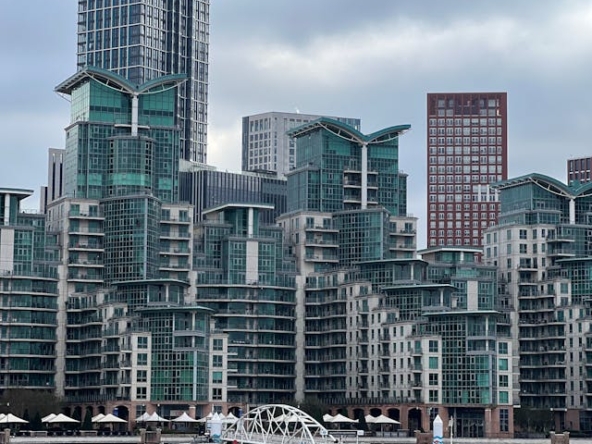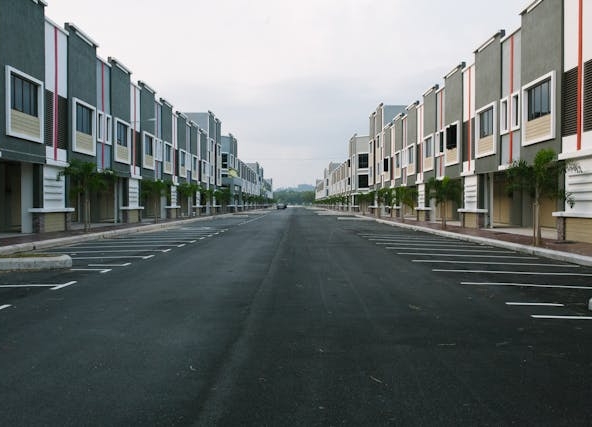Commercial real estate in Winnipeg offers a wealth of opportunities for investors, business owners, and entrepreneurs looking to expand their property portfolios or establish a physical presence in Manitoba’s capital city.
This thriving sector encompasses a diverse range of properties, from office buildings and retail spaces to industrial warehouses and multi-unit residential complexes.
Key Takeaways
- Commercial real estate in Winnipeg includes office, retail, industrial, and multi-unit residential properties
- The market is influenced by factors such as economic growth, population trends, and urban development
- Investment strategies range from direct property ownership to REITs and crowdfunding platforms
- Understanding local zoning laws, property taxes, and market trends is crucial for success in Winnipeg’s commercial real estate market
- Tenant mix, location, and property condition are key factors in determining the value and potential of commercial properties
- The COVID-19 pandemic has impacted the sector, leading to shifts in demand for certain property types

The Winnipeg Commercial Real Estate Landscape
Winnipeg’s commercial real estate market is a dynamic and evolving sector that reflects the city’s economic growth and changing business needs. As the largest city in Manitoba and a key economic hub for the province, Winnipeg offers a diverse range of commercial property options for investors and businesses alike.
Office Space in the Heart of the City
The downtown core of Winnipeg is home to a mix of historic and modern office buildings, catering to businesses of all sizes. From the iconic Portage and Main intersection to the emerging Exchange District, office spaces in Winnipeg offer a blend of character and functionality.
Retail Opportunities in Growing Neighbourhoods
Winnipeg’s retail landscape is diverse, with opportunities ranging from strip malls in suburban areas to high-street storefronts in trendy neighbourhoods like Osborne Village and Corydon Avenue. The city’s growing population and changing consumer habits continue to shape the retail real estate market.
Industrial Properties for a Thriving Manufacturing Sector
With its central location in North America, Winnipeg has a strong industrial real estate market. Areas like CentrePort Canada offer modern warehousing and distribution facilities, while established industrial parks provide options for manufacturing and light industrial businesses.

Understanding Commercial Real Estate Investments in Winnipeg
Investing in commercial real estate in Winnipeg requires a solid understanding of the local market dynamics and investment strategies. Whether you’re a seasoned investor or new to the commercial property sector, it’s essential to consider various factors that can impact your investment’s success.
Direct vs. Indirect Investment Options
Investors in Winnipeg’s commercial real estate market have several options to consider. Direct investment involves purchasing and managing properties directly, while indirect investment can include real estate investment trusts (REITs) or participating in crowdfunding platforms focused on commercial properties.
Analyzing Market Trends and Economic Indicators
Successful commercial real estate investment in Winnipeg hinges on understanding local market trends and economic indicators. Factors such as population growth, employment rates, and major infrastructure projects can all impact the demand for commercial properties in different areas of the city.
The Role of Property Management in Commercial Real Estate
Effective property management is crucial for maximizing the value of commercial real estate investments in Winnipeg. From tenant relations to maintenance and financial reporting, professional property management can help ensure the long-term success of your investment.
Navigating Winnipeg’s Commercial Real Estate Regulations
Commercial real estate in Winnipeg is subject to various regulations and zoning laws that investors and business owners need to be aware of. Understanding these regulations is essential for making informed decisions and avoiding potential legal issues.
Zoning Laws and Land Use Regulations
Winnipeg’s zoning bylaws dictate how properties can be used in different areas of the city. These regulations can impact everything from the type of businesses that can operate in a specific location to the height and design of buildings.
Property Taxes and Assessment Processes
Commercial property owners in Winnipeg are subject to property taxes based on the assessed value of their properties. Understanding the assessment process and potential tax implications is crucial for budgeting and financial planning.
Environmental Considerations and Regulations
Environmental regulations play an increasingly important role in commercial real estate development and management in Winnipeg. From brownfield redevelopment to energy efficiency standards, environmental considerations can impact property values and development opportunities.

Key Factors in Evaluating Commercial Properties in Winnipeg
When assessing commercial real estate opportunities in Winnipeg, several key factors should be considered to determine the potential value and suitability of a property.
Location and Accessibility
The old adage “location, location, location” holds true in Winnipeg’s commercial real estate market. Properties with good access to transportation networks, amenities, and target markets often command higher values and attract quality tenants.
Building Condition and Infrastructure
The physical condition of a commercial property can significantly impact its value and appeal to potential tenants. Assessing factors such as the age of building systems, energy efficiency, and overall maintenance is crucial when evaluating a property.
Tenant Mix and Lease Structures
For multi-tenant properties, the quality and diversity of tenants can be a key factor in determining the stability and potential of an investment. Understanding existing lease structures and terms is also essential for projecting future cash flows.
Emerging Trends in Winnipeg’s Commercial Real Estate Market
The commercial real estate market in Winnipeg is constantly evolving, with new trends emerging that shape the sector’s future. Staying informed about these trends can help investors and business owners make strategic decisions.
The Impact of E-commerce on Retail Real Estate
The growth of e-commerce has led to changes in the retail real estate landscape in Winnipeg. While some traditional retail spaces face challenges, there’s increasing demand for distribution centres and last-mile delivery facilities.
Flexible Workspaces and Co-working Trends
The rise of flexible work arrangements has led to increased demand for co-working spaces and flexible office solutions in Winnipeg. This trend is reshaping the office real estate market and creating new opportunities for property owners and investors.
Sustainable Building Practices and Green Certifications
There’s growing interest in sustainable building practices and green certifications in Winnipeg’s commercial real estate sector. Properties with LEED certification or other environmentally friendly features are becoming increasingly attractive to tenants and investors alike.
Financing Commercial Real Estate Investments in Winnipeg
Securing financing for commercial real estate investments in Winnipeg requires careful planning and an understanding of the available options. From traditional bank loans to alternative financing sources, investors have several avenues to explore.
Traditional Bank Financing Options
Many commercial real estate investors in Winnipeg rely on traditional bank financing to fund their property acquisitions. Understanding the requirements and terms of commercial mortgages is essential for structuring a successful investment.
Alternative Financing Sources
In addition to traditional bank loans, investors in Winnipeg’s commercial real estate market may explore alternative financing options such as private lenders, mezzanine financing, or joint venture partnerships.
Government Programs and Incentives
Various government programs and incentives may be available to support commercial real estate development and investment in Winnipeg. These can include tax incentives, grants for heritage building restoration, or programs supporting energy-efficient upgrades.
The Role of Commercial Real Estate in Winnipeg’s Economy
Commercial real estate plays a significant role in Winnipeg’s economy, contributing to job creation, tax revenue, and overall economic growth. Understanding this broader economic context can help investors and business owners make informed decisions.
Job Creation and Economic Impact
The development and management of commercial real estate in Winnipeg create jobs across various sectors, from construction and property management to professional services like legal and accounting.
Tax Revenue and Municipal Services
Commercial properties contribute significantly to Winnipeg’s tax base, helping to fund essential municipal services and infrastructure improvements throughout the city.
Supporting Business Growth and Innovation
A robust commercial real estate market in Winnipeg provides the physical infrastructure necessary for businesses to grow and innovate, supporting the city’s overall economic development.

Challenges and Opportunities in Winnipeg’s Commercial Real Estate Market
Like any real estate market, Winnipeg’s commercial sector faces both challenges and opportunities. Understanding these can help investors and business owners navigate the market more effectively.
Addressing Vacancy Rates in Certain Sectors
Some sectors of Winnipeg’s commercial real estate market may face higher vacancy rates, presenting both challenges for property owners and opportunities for businesses seeking space.
Adapting to Changing Tenant Needs
As business needs evolve, commercial property owners in Winnipeg must adapt to changing tenant requirements, whether through property upgrades, flexible lease terms, or reimagining spaces for new uses.
Opportunities in Redevelopment and Adaptive Reuse
Winnipeg’s stock of older buildings presents opportunities for redevelopment and adaptive reuse projects, allowing investors to breathe new life into historic properties while meeting modern business needs.
The Future of Commercial Real Estate in Winnipeg
As Winnipeg continues to grow and evolve, the commercial real estate market is poised for further development and transformation. Understanding potential future trends can help investors and business owners position themselves for long-term success.
Projected Growth Areas and Development Hotspots
Identifying areas of Winnipeg slated for future growth and development can help investors target properties with strong appreciation potential.
Technological Advancements and Smart Buildings
The integration of technology in commercial buildings is likely to accelerate, with smart building features becoming increasingly important to tenants and property managers in Winnipeg.
The Ongoing Impact of Remote Work on Office Space Demand
The shift towards remote and hybrid work models may continue to influence the demand for office space in Winnipeg, potentially leading to new opportunities for flexible and adaptable workspace solutions.
Working with Commercial Real Estate Professionals in Winnipeg
Navigating Winnipeg’s commercial real estate market often requires the expertise of various professionals. Building a strong team can help ensure the success of your investment or business venture.
The Role of Commercial Real Estate Agents
Experienced commercial real estate agents in Winnipeg can provide valuable market insights, help identify suitable properties, and assist with negotiations and transaction management.
Legal Considerations and Working with Real Estate Lawyers
Given the complexity of commercial real estate transactions, working with a knowledgeable real estate lawyer in Winnipeg is essential for protecting your interests and ensuring smooth property acquisitions or leases.
- Effective marketing strategies are crucial for commercial real estate (CRE) professionals to attract potential buyers or tenants. According to a CREJ article, digital marketing has become increasingly important in the CRE industry.
- Social media platforms like LinkedIn, Facebook, and Instagram can be used to target specific audiences and generate leads. Forbes reports that 84% of CRE brokers use social media for business.
- Another effective strategy is content marketing. Creating valuable and informative content about the property or the industry can help establish credibility and attract potential buyers or tenants. CRE Tech explains that content marketing can also improve search engine rankings and generate leads.
- Networking is another essential strategy for CRE professionals. CCIM states that networking can lead to new business opportunities and partnerships.
- Lastly, offering flexible lease terms and creative financing solutions can make a property more attractive to potential tenants or buyers. Bisnow reports that flexible leases have become increasingly popular during the pandemic.

The Importance of Professional Property Management
For investors in Winnipeg’s commercial real estate market, professional property management can be crucial for maintaining property value, ensuring tenant satisfaction, and maximizing returns on investment.
| Property Type | Average Price per Square Foot | Typical Lease Rates (per sq ft/year) | Average Vacancy Rate |
|---|---|---|---|
| Office | $200 – $350 | $15 – $30 | 12% |
| Retail | $250 – $500 | $20 – $45 | 8% |
| Industrial | $100 – $200 | $8 – $15 | 5% |
| Neighbourhood | Commercial Property Types | Development Potential | Average Price Range |
|---|---|---|---|
| Downtown | Office, Retail | High | $5M – $50M+ |
| Exchange District | Office, Retail, Mixed-Use | Medium | $2M – $20M |
| St. Boniface | Industrial, Retail | Medium | $1M – $10M |
| Transcona | Industrial | High | $500K – $5M |
Key factors influencing commercial real estate decisions in Winnipeg:
- Location and accessibility
- Property condition and age
- Tenant quality and lease terms
- Local economic indicators
- Zoning and development potential
- Market trends and vacancy rates
Commercial real estate in Winnipeg offers a diverse range of opportunities for investors and businesses alike. By understanding the local market dynamics, working with experienced professionals, and staying informed about emerging trends, individuals can make informed decisions and potentially reap significant rewards in this vibrant sector of Manitoba’s capital city.




